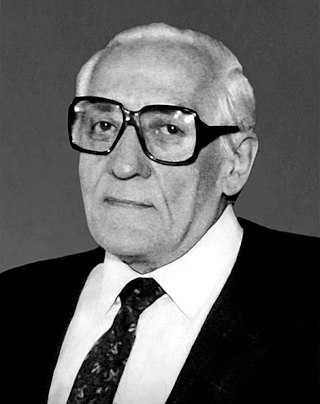The United Food and Commercial Workers International Union (UFCW) is a labor union representing approximately 1.3 million workers in the United States and Canada in industries including retail; meatpacking, food processing and manufacturing; hospitality; agriculture; cannabis; chemical trades; security; textile, and health care. UFCW is affiliated with the Canadian Labour Congress (CLC) and the AFL–CIO; it disaffiliated from the AFL–CIO in 2005 but reaffiliated in 2013. UFCW is also affiliated to UNI Global Union and the IUF.

The Communications Workers of America (CWA) is the largest communications and media labor union in the United States, representing about 700,000 members in both the private and public sectors. The union has 27 locals in Canada via CWA-SCA Canada representing about 8,000 members. CWA has several affiliated subsidiary labor unions bringing total membership to over 700,000. CWA is headquartered in Washington, DC, and affiliated with the AFL–CIO, the Strategic Organizing Center, the Canadian Labour Congress, and UNI Global Union.

UNITE HERE is a labor union in the United States and Canada with roughly 300,000 active members. The union's members work predominantly in the hotel, food service, laundry, warehouse, and casino gaming industries. The union was formed in 2004 by the merger of Union of Needletrades, Industrial, and Textile Employees (UNITE) and Hotel Employees and Restaurant Employees Union (HERE).

The meat-packing industry handles the slaughtering, processing, packaging, and distribution of meat from animals such as cattle, pigs, sheep and other livestock. Poultry is generally not included. This greater part of the entire meat industry is primarily focused on producing meat for human consumption, but it also yields a variety of by-products including hides, dried blood, protein meals such as meat & bone meal, and, through the process of rendering, fats.
Richard Joseph Cashin, is a lawyer, former Canadian politician and trade union leader.
Community unionism, also known as reciprocal unionism, refers to the formation of alliances between unions and non-labour groups in order to achieve common goals. These unions seek to organize the employed, unemployed, and underemployed. They press for change in the workplace and beyond, organizing around issues such as welfare reform, health care, jobs, housing, and immigration. Individual issues at work are seen as being a part of broader societal problems which they seek to address. Unlike trade unions, community union membership is not based on the workplace- it is based on common identities and issues. Alliances forged between unions and other groups may have a primary identity based on affiliations of religion, ethnic group, gender, disability, environmentalism, neighborhood residence, or sexuality.
The Amalgamated Meat Cutters (AMC), officially the Amalgamated Meat Cutters and Butcher Workmen of North America, 1897–1979, was a labor union that represented retail and packinghouse workers. In 1979, the AMCBW merged with the Retail Clerks International Union to form the United Food and Commercial Workers (UFCW)
The United Packinghouse Workers of America (UPWA), later the United Packinghouse, Food and Allied Workers, was a labor union that represented workers in the meatpacking industry.

The Christian Labour Association of Canada (CLAC) is a labour union that represents companies in the construction, healthcare, and food industries. It was established in 1952 to represent workers on the basis of "Christian social principles". The union claims that its approach to labour relations develops workers' sense of responsibility, participation, stewardship, and dignity. It opposes what it calls the undemocratic, adversarial, and monopolistic practices of the labour movement. It has been characterized by other Canadian trade unions for being a "company union" for its support of employer friendly legislation.
Walmart Canada is a Canadian retail corporation and the Canadian branch of the U.S.-based multinational retail conglomerate Walmart. Headquartered in Mississauga, Ontario, it was founded on March 17, 1994, with the purchase of the Woolco Canada chain from the F. W. Woolworth Company.
The organizations listed below constitute the Canadian Labour Congress, the national federation of trade unions:

SEIU Healthcare is a Canadian trade union representing more than 60,000 workers in Ontario, Canada. Through collective bargaining, the union represents workers in hospitals, home care, nursing and retirement homes, and community services. The union has been active in Ontario for over 70 years.
The Fish, Food and Allied Workers Union (FFAW) is a trade union in Newfoundland and Labrador that represents 15,000 workers. Most of the members are in the fishing industry but the FFAW also has organized workers in the hotel, hospitality, brewing, metal fabrication, window manufacturing and oil industries in the province. The FFAW is the largest private-sector union in Newfoundland and is affiliated with Unifor.
National City was a suburb of East St. Louis, Illinois. Incorporated in 1907, it was a company town for the St. Louis National Stockyards Company. In 1996, the company, which owned all residential property in the town, evicted all of its residents. The following year, because it had no residents, National City was dissolved by court order. Its site was subsequently annexed by nearby Fairmont City, Illinois.

Huguette Plamondon was a trade unionist in Quebec, Canada. A trailblazer and leader in the Quebec, Canadian and international labour movements, she dedicated the bulk of her efforts to representing the United Packinghouse Workers of America and then the United Food and Commercial Workers, after the UPWA merged with the Amalgamated Meat Cutters in 1979 to create the UFCW. She also served as a vice-president of the Canadian Labour Congress from 1956 until 1988.

Clifford Russel Evans, was a Canadian trade unionist, pension plan innovator, and a key player in the creation of the United Food and Commercial Workers International Union.

Romeo Mathieu was a Canadian trade unionist, progressive political activist, and leading solidarity builder for the Quebec labour movement.

Fred Dowling (1902–1982) was a Canadian trade unionist who is best known for leading the effort to organize meatpacking workers in Canada during the late 1930s and early 1940s. He was a founding leader of the United Packinghouse Workers of America (UPWA), and served the union as international vice-president and Canadian director for nearly 30 years.
The 1985–1986 Hormel strike was a labor strike that involved approximately 1,500 workers of the Hormel meatpacking plant in Austin, Minnesota in the United States. The strike, beginning August 17, 1985 and lasting until September 13 of the following year, is considered one of the longest strikes in Minnesota history and ended in failure for the striking workers.








